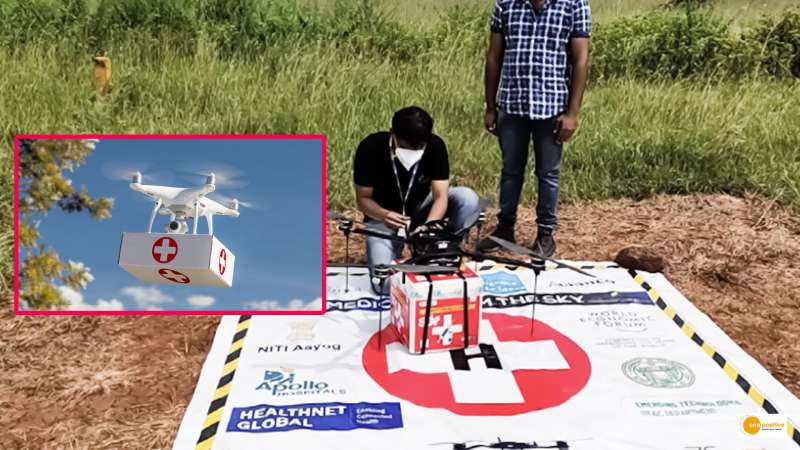

Highlights:
• Drones will supply medical facilities to remote area
• First successful trial in Asia of long-range vaccine delivery
• Trial involved 300 drone sorties in a 45-day
Drones can be used to bring quality healthcare to people in the remotest areas of India, the World Economic Forum (WEF) said on 18 May.
Eight healthcare centre covering a population of over 3,00,000 people took part in the 45-day trial in which health workers delivered vital vaccines and medicines by drone. It is the first successful trial in Asia of long-range vaccine delivery, the WEF said it shows how drone technology can be scaled up across India to meet urgent healthcare needs in remote areas. It was conducted as part of a wider programme,
Medicine from the Sky, led by the WEF’s Centre for the Fourth Industrial Revolution India, in partnership with the Government of Telangana, Apollo Hospital’s Healthnet Global and NITI Aayog.
Drones to extend urban-grade healthcare to remotest areas
The programme aims to work with business, policymakers and communities to use drone technology to extend urban-grade healthcare to India’s remotest areas. Multiple stakeholders have been consulted throughout, including healthcare workers, local communities, local police, district-level administrators and local air traffic control.
Telangana was chosen for the programme
Under the programme, healthcare professionals delivered vaccines, COVID-19 testing samples and medical products to a population of over 3,00,000 people represented by eight district health facilities in the Vikarabad district of the southern state of Telangana. The district was chosen because it includes communities living in the dense forests of the Anantagiri hills. The trial involved over 300 drone sorties in a 45-day period.
Programme described as “pathbreaking”
It follows a drive to improve rural healthcare, with a range of programmes aimed at making it more accessible and inexpensive. The pandemic highlighted the lack of access to healthcare for rural communities due to infrastructure, supply and transport challenges. Civil Aviation Minister Jyotiraditya Scindia described the programme as “pathbreaking”.
Apollo Hospitals was a clinical partner in the trail. Sangita Reddy, Joint Managing Director, said the organisation’s mission was to enable access to quality healthcare services globally with the use of cutting-edge technology. Purushottam Kaushik, Head of the Centre for the Fourth Industrial Revolution India, said that India’s policies on the lower skies are opening up new possibilities for innovation, business and humanitarian work.


